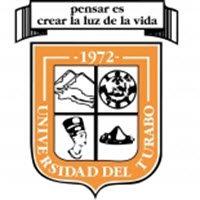Below is a summary of the abstract you submitted. Presenting author(s) is shown in bold.
If any changes need to be made, you can modify the abstract or change the authors.
You can also download a .docx version of this abstract.
If there are any problems, please email Dan at dar78@pitt.edu and he'll take care of them!
This abstract was last modified on June 1, 2025 at 11:52 a.m..

PHAME (Phage Hunters Advancing Microbial Experiences) is the local name for the SEA-PHAGES program, which has been active at Universidad Ana G. Méndez in Gurabo, Puerto Rico, since 2019. As a Primarily Undergraduate Institution (PUI) with limited resources and recent institutional restructuring, offering consistent research opportunities has been a challenge. These limitations have sometimes placed our students at a disadvantage when applying to competitive programs in medicine, veterinary medicine, or graduate studies. The SEA-PHAGES program has provided a valuable pathway for sophomore and junior students to engage in high-quality, hands-on research. To date, 73+ students have participated across three Phage Discovery sections and four Phage Genomics sections. A total of 29 phages have been isolated—23 from previous years and 6 newly isolated this year. Of these, six phages have been sequenced and annotated, including two newly annotated this year (2024): Anilorac and Tongui. As part of the Phage Discovery component, students present their phages and preliminary findings through oral presentations and draft manuscripts. During the Phage Genomics phase, students present at the UAGM Undergraduate Symposium and prepare posters for the SEA-PHAGES Annual Symposium. These collaborative presentations are integral to their final evaluations and emphasize the importance of scientific communication and outreach. Participation in PHAME has fostered a dynamic environment for ongoing, student-led research at UAGM Gurabo. One research team is examining the evolutionary diversity and conservation of minor tail protein genes in Microbacterium foliorum-infecting phages. They have identified distinct clades and are employing SWISS-MODEL to predict and compare the structural features of these proteins. Another group is actively developing and applying phage isolation methods to detect phages that infect enteric bacteria in freshwater ecosystems across Puerto Rico, contributing to a broader understanding of local microbial ecology. Additionally, a student is conducting an in-depth literature review to identify the most prevalent bacterial phytopathogens in Puerto Rico, with the goal of isolating phages that could serve as effective biocontrol agents in agriculture. Together, these projects reflect the sustained commitment of UAGM Gurabo students to advancing phage research and addressing real-world challenges through innovative scientific inquiry.

